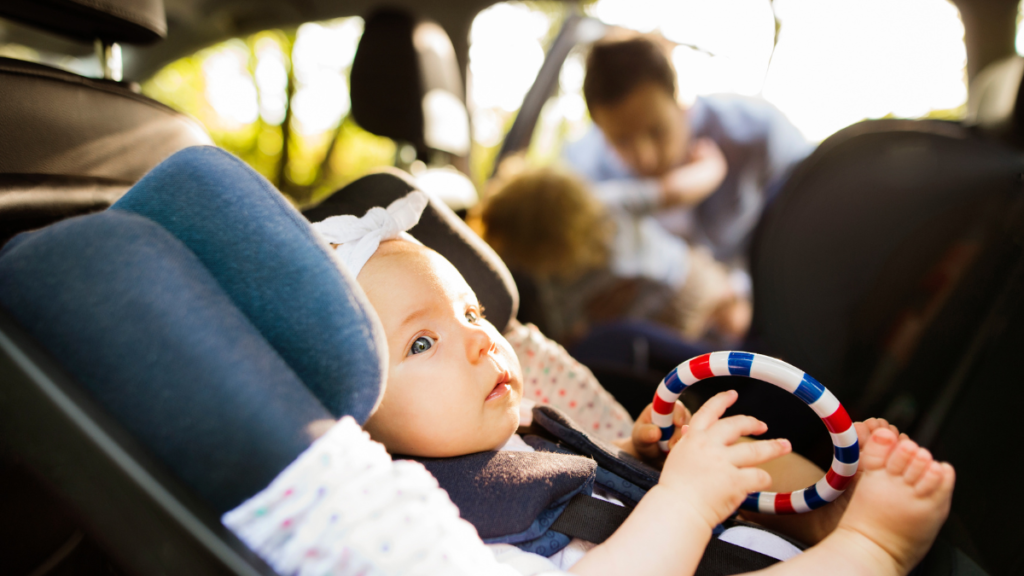
They’re your pride and joy, the embodiment of your unconditional love and if you could you’d probably try and wrap them up in cotton wool and never leave the house. While this may be a little extreme, there are measures you can take to keep your baby as safe as possible on the move. We’ve got the lowdown on car seat safety.
To support Road Safety Week, we’ve created a simple car seat safety check list to help demystify the car seat fitting process and keep children as safe as possible on the road.
In the Canada, you are required by law to buy a car seat that meets the official standards. Your child needs to be in the correct category for their age and size. The first you’ll need to buy is a Group 0+ infant car seat, suitable from birth up to 15 months old – or 13kg – whichever happens to come first. As your baby grows into a toddler, you’ll want a convertible or a new Group 1 seat.
To check car seat’s harness is tight enough, try and fit two fingers under the harness and wiggle slightly. If you can lift the shoulder strap or pinch the belt in a loop, it’s not tight enough.
For optimum car seat safety, it’s recommended that a child stays in a rear-facing car seat until they are four years old, or they have reached 18.5kg.
Saving lives could be as simple as checking your baby’s car seat before you travel.
The harness height should be level, or slightly below your child’s shoulder in rear-facing seats and level or slightly above the child’s shoulder in forward-facing seats.
Your child’s head should always be within the confines of the headrest
Before you buckle your baby into the car seat, take off any thick clothing like winter coats as these can bunch up and prevent the car seat straps from fastening safely.
It’s important to keep yourself as safe as possible, too. Make sure you always secure car seats and booster seats, even if they’re empty, to prevent them from smashing into you or coming loose and distracting you.
Get into the routine of lengthening the harness before clicking the release button so it’s easier to get your little one out and ready for their return too.
If you’re buying a car seat in-store, ask for a demonstration or take your car and get a trained member of staff to fit it for you while you watch (and take note).
Don’t forget to check it daily, it can loosen over time. You know the seat is tight enough when you flick it and it makes a noise.
Think about getting a mirror and fixing it to the headrest of the rear seat to keep up with car seat safety. This way you can see your little one – and vice versa – when they’re in a rearward car seat.
You can keep your family safe in the car by following these simple tips.
© 2023 All rights reserved Baby & Toddler - part of parent promotions